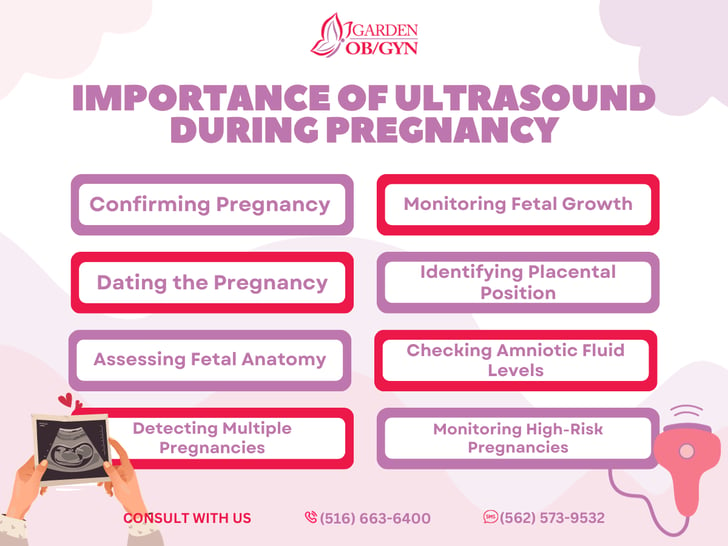Importance of Ultrasound During Pregnancy
Pregnancy, a transformative journey, relies on crucial tools like ultrasound for maternal and fetal well-being. This non-invasive imaging ensures a healthy, informed, and joyous pregnancy.

Pregnancy is a miraculous journey filled with anticipation, excitement, and a plethora of emotions. As expectant parents navigate this transformative experience, various medical tests and procedures play a crucial role in ensuring the health and well-being of both the mother and the developing fetus. One such vital tool in the realm of prenatal care is the ultrasound.
Ultrasound: A Window into the Womb
Ultrasound, also known as sonography, is a non-invasive imaging technique that uses sound waves to create real-time visualizations of the inside of the body. During pregnancy, ultrasounds are employed to monitor fetal development, assess the mother's reproductive organs, and detect any potential complications. Here are some compelling reasons why you may need an ultrasound during pregnancy:
-
Confirming Pregnancy: Ultrasounds are often the first step in confirming a pregnancy. By visualizing the gestational sac and later the fetal heartbeat, healthcare providers can definitively establish the presence of a viable pregnancy.
-
Dating the Pregnancy: Accurately determining the gestational age is crucial for proper prenatal care. Ultrasounds help estimate the due date by measuring the size of the fetus, aiding healthcare professionals in monitoring fetal growth and development.
-
Assessing Fetal Anatomy: Around the 18-20 week mark, a detailed ultrasound, often called the anatomy scan, is performed. This comprehensive examination evaluates the structure and function of the fetus's organs and ensures that everything is developing as expected.
-
Detecting Multiple Pregnancies: Ultrasounds are instrumental in identifying multiple pregnancies early on. Knowing if you are expecting twins, triplets, or more allows healthcare providers to tailor their care plan to the unique needs of a multiple pregnancy.
-
Monitoring Fetal Growth: Regular ultrasounds throughout the pregnancy track the growth and development of the fetus. This information helps healthcare providers identify potential issues such as intrauterine growth restriction or macrosomia (excessive fetal growth).
-
Identifying Placental Position: The location of the placenta is critical for a healthy pregnancy. Ultrasound helps determine whether the placenta is correctly positioned, reducing the risk of complications such as placenta previa.
-
Checking Amniotic Fluid Levels: Adequate levels of amniotic fluid are essential for fetal well-being. Ultrasounds can assess amniotic fluid volume, ensuring that the fetus has a proper environment for growth and movement.
-
Monitoring High-Risk Pregnancies: In cases of high-risk pregnancies, such as those involving maternal medical conditions or previous pregnancy complications, frequent ultrasounds may be necessary to closely monitor both the mother and the baby.
Ultrasound technology has revolutionized prenatal care, providing invaluable insights into the health and development of the fetus. These non-invasive procedures offer expectant parents a unique opportunity to witness their baby's growth and milestones while allowing healthcare providers to detect and address potential issues early on. As an integral component of modern obstetrics, ultrasounds contribute significantly to ensuring a safe and healthy pregnancy for both mother and child. If recommended by your healthcare provider, embracing the opportunity for an ultrasound during pregnancy can enhance the overall experience and contribute to the well-being of your growing family.
































